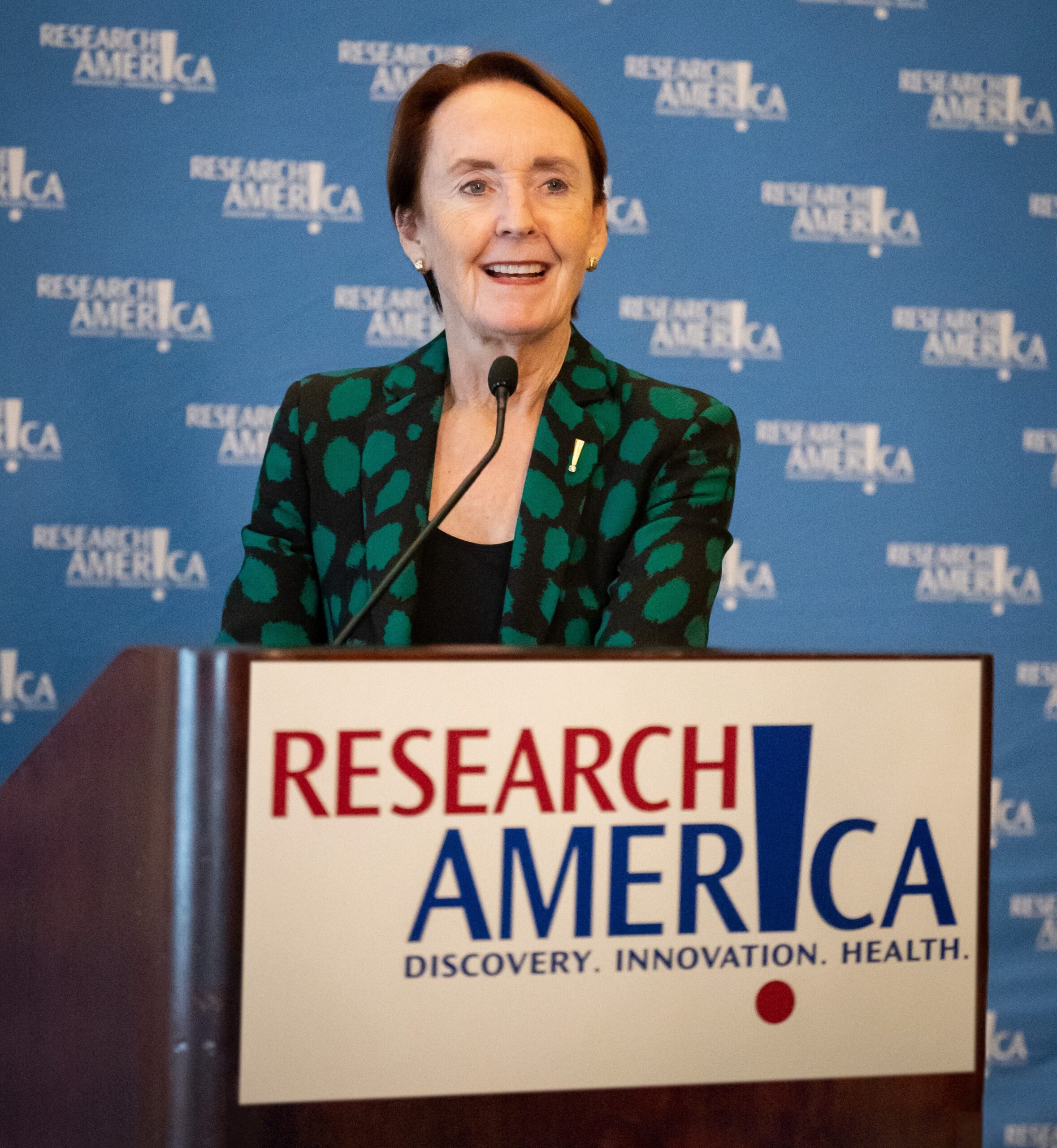Advocacy Happened in August

Advocacy works! A priority for research advocates gained traction this week: Senator Elizabeth Warren agreed to support the nomination of Monica Bertagnolli, MD, President Biden’s nominee as Director of the National Institutes of Health, eliminating one impediment to Senate confirmation of her nomination.
Other impediments remain – the Senate HELP Committee has yet to schedule a confirmation hearing for Dr. Bertagnolli, and will then need to vote on the nomination. Use this editable email to encourage your senators to support quick action to confirm Dr. Bertagnolli. She is a leader who will bring vision, hands-on-experience, and heart to a role that demands all three attributes.
NIH Mission Statement: Transparency and accountability are top priorities for the NIH, which has issued a Request for Information (RFI) inviting feedback on a proposed update to the NIH mission statement. As the largest public funder of biomedical and behavioral research in the world, it is important the mission statement reflects NIH’s goal of turning scientific discoveries into better health for all.
The RFI is open to everyone through November 24. Please take a moment to review the RFI and share your input.
On the Hill: A pressing priority for Congress in September is to act on FY24 appropriations before the new fiscal year begins on October 1. It is a foregone conclusion that the deadline to complete action on all 12 appropriations bills will not be met; worse, a government shutdown is likely, despite congressional leadership’s efforts to reach consensus on a continuing resolution (CR).
Sadly, there are terrible human consequences if the government shuts down because Congress is unable to reach an agreement on FY24 funding. During a previous government shutdown in 2011, Maddie Major, a then 8-year-old cancer patient, was unable to access a potentially life-saving clinical trial while the FDA was subject to shutdown restrictions (Maddie died in 2015). Budget gridlock breeds harm. Harm to patients, to medical progress, and to the well-being of the American public.
Use this editable email to urge your representatives in Congress to work toward a bipartisan budget solution and avoid a government shutdown.
China S&T Agreement Extended: As we discussed two weeks ago, the U.S. has had a formal science and technology agreement with China since 1979 that was due to expire on August 27. Rising geopolitical tensions, as well as disagreements in Congress over the appropriate level of our country’s engagement with China, complicated consideration of what has historically been a routine, five-year extension. The Administration this week signed a six-month extension to allow time for further discussion of what U.S.-China S&T collaboration will look like in the future.
An article in Science Business goes into depth on the issues and varying perspectives, and offers additional global context. S&T covers everything from applying artificial intelligence to drug discovery to fighting climate change, and, going forward, appropriate collaboration may vary greatly depending on the specific technology in question. Other countries – notably in Europe – are facing similar challenges over future S&T collaboration with China, and the course the U.S. takes is likely to be a bellwether of other nations’ actions.
Climate and Infection Control: An ominous headline in The Hill this week calls attention to the growing impact of climate on infectious diseases: “‘Valley fever’ fungus surging northward in California as climate changes.” Valley fever (learn more in our Valley fever fact sheet) is one of many infectious diseases that are becoming more prevalent in a changing environment.
A discussion on climate, infection control, and antimicrobial resistance is one of the many timely sessions at our National Health Research Forum on September 19 and 20. The Forum is free and open to all; we encourage you to take a look at the program schedule and register today.
Upcoming Alliance Discussion: Join us on Thursday, September 7, at 1 p.m. ET for a virtual discussion with Mitch Prinstein, PhD, Chief Science Officer at the American Psychological Association. We’ve asked Dr. Prinstein to share insights from APA’s recent report on the intersection of social media and adolescent mental health and priorities in this important area of research and practice. Register now!




